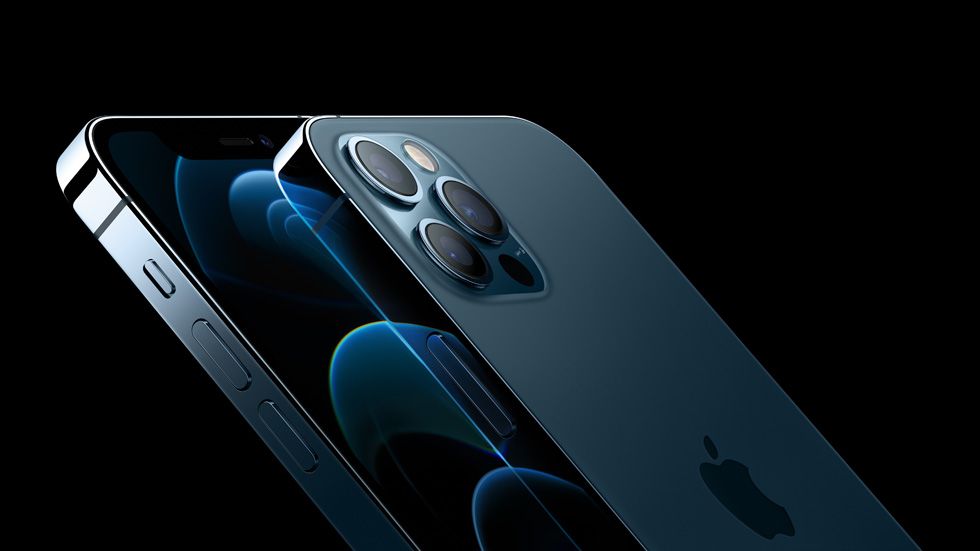iPhone 12 embarrasses the competition in first benchmarks — Your move Qualcomm
A14 Bionic just widens Apple's mobile performance lead

The early reviews for the iPhone 12 and iPhone 12 Pro are in and while the battery life looks like it might be an issue compared to previous models, the overall response to both has been extremely positive.
One feature that we knew would be a standout is that new A14 Bionic chip powering all four iPhone 12 variants. However, our sister site Tom's Guide, published benchmark comparisons and the degree to which it outshines even the high-end competition is astounding.
- iPhone 12 vs. iPhone 12 Pro: Which new Apple phone is best?
- iPhone 12 pre-orders are live — here are the best deals
- Black Friday 2020: Early deals and predictions
Not surprisingly, the only real competition for the A14 Bionic was last year's A13 Bionic, Qualcomm's current top of the line option the Snapdragon 865+ was next, but a pretty distant third in most of the tests. Now it's worth noting that the Qualcomm Snapdragon 875 is expected at the Snapdragon Tech Summit on December 1-2, but we have yet to see any benchmark leaks for it.
Here's a look at the Geekbench 5 results for the iPhone 12 and iPhone 12 Pro versus some of the most popular Android smartphones on the market.
iPhone 12: Geekbench 5 test
| Phone | CPU | Geekbench 5 single-core | Geekbench 5 multi-core |
| iPhone 12 | A14 Bionic | 1,593 | 3,859 |
| iPhone 12 Pro | A14 Bionic | 1,585 | 3,669 |
| iPhone 11 Pro Max | A13 Bionic | 1,334 | 3,517 |
| Samsung Galaxy Note 20 Ultra | Snapdragon 865+ | 985 | 3,294 |
| Asus ROG Phone 3 | Snapdragon 865+ | 974 | 3,393 |
| OnePlus 8T | Snapdragon 865 | 887 | 3,203 |
| Samsung Galaxy S20 Plus | Snapdragon 865 | 811 | 3,076 |
| Google Pixel 5 | Snapdragon 765G | 596 | 1,617 |
As you can see, the iPhone 12 sweeps both the single-core and multi-core results with the iPhone 12 Pro close behind, although slightly less so on multicore. The iPhone 11 Pro Max and its year old A13 Bionic finish roughly 19% behind on the single-core, but only about 5% slower on multicore versus the iPhone 12 Pro.
None of the Android models even managed to crest the 1,000 mark on single-core results, placing even the overclocked Snapdragon 865+ found in the Galaxy Note 20 Ultra and the gaming-focused Asus ROG Phone 3 well behind last year's iPhone 11 Pro Max and its A13 Bionic.
iPhone 12: 3DMark Wild Life test
Turning from the more general performance Geekbench 5 to a graphics-focused benchmark from 3DMark, things actually get worse for the Android competition. This test is meant to simulate gaming performance.
Stay in the know with Laptop Mag
Get our in-depth reviews, helpful tips, great deals, and the biggest news stories delivered to your inbox.
| Phone | CPU | 3DMark Wild Life score | 3DMark Wild Life FPS |
| iPhone 11 Pro Max | A13 Bionic | 7,709 | 42 |
| iPhone 12 Pro | A14 Bionic | 6,567 | 39 |
| iPhone 12 | A14 Bionic | 6,562 | 39 |
| Samsung Galaxy Note 20 Ultra | Snapdragon 865+ | 4,182 | 25 |
| Samsung Galaxy S20 Plus | Snapdragon 865 | 3,809 | 23 |
| OnePlus 8T | Snapdragon 865 | 3,772 | 23 |
| Google Pixel 5 | Snapdragon 765G | 1,138 | 7 |
The iPhone 11 Pro Max and the A13 Bionic actually manage to take this one home by a decent margin, which is a bit perplexing. The iPhone 12 and iPhone 12 Pro finish almost identically this time and with a wide lead over any of the Android options.
There was no question that the A14 Bionic was going to take over the top spot in the world of mobile processors, it was simply a question of by how much. Qualcomm is really the only game in town on the Android side of things and while catching the A14 Bionic seems clearly out of reach for the Snapdragon 875, perhaps Qualcomm can finally catch the A13 Bionic.
Sean Riley has been covering tech professionally for over a decade now. Most of that time was as a freelancer covering varied topics including phones, wearables, tablets, smart home devices, laptops, AR, VR, mobile payments, fintech, and more. Sean is the resident mobile expert at Laptop Mag, specializing in phones and wearables, you'll find plenty of news, reviews, how-to, and opinion pieces on these subjects from him here. But Laptop Mag has also proven a perfect fit for that broad range of interests with reviews and news on the latest laptops, VR games, and computer accessories along with coverage on everything from NFTs to cybersecurity and more.
